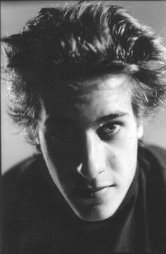When I was a young married adult, my wife, son, and I used to visit my Great Aunt Lyda (pronounced Lie- dee) in Uniontown, PA. She was my grandmother’s sister on my father’s side, born in 1883, and never married (she remained a maiden lady, a curiosity these days).
Aunt Lyda was well educated, having attended college. She taught a couple years until her sister, my Great Aunt Sadie, became ill with tuberculosis. Aunt Lyda took care of her sister until she died in 1903, and continued to live in her parents’ home and care for them. My great-grandfather, her father, died in the epidemic of Spanish Influenza that followed World War I, and Aunt Lyda took care of her mother, until the middle of the Second World War.
Aunt Lyda died in 1981 at the age of 98. Until she was 90 she lived in her parents’ house. On her 89th birthday, while we were newly marrieds visiting her, she fell down the back stairs and broke a vertebra in her neck. The fall didn't kill her and she lived another nine years, which I find pretty amazing. We were shaken, but glad we were there. She had taken the wallpaper off the closet under the front stairs and painted the floor in the basement the week before we came to visit.
After her recovery, Aunt Lyda slowly went blind. She had cataracts that were inoperable. She moved to an apartment, and a woman came in each late morning to make lunch, clean, run errands, make and clean up supper and set out breakfast. Aunt Lyda was an amazing lady, in all respects a great Great Aunt.
In one of our conversations, I asked her what the most important invention of her lifetime was. Aunt Lyda’s reply was not, as I expected, the airplane, but the match. Matches, she explained, allowed the starting of fires effortlessly. Prior to their invention, people had to beg a coal from a neighbor, keep a fire banked in the furnace or stove, or start a fire with two sticks or a stone and flint.
In my research on matches, I found that Aunt Lyda was only partly correct. Matches were invented in the 1830’s. However, Joshua Pusey patented the book match in 1889. He later sold the patent to the Diamond Match Company in 1896, and they became universal.
This leads to a curious coincidence. On the other side of the family tree, my mother’s father, my Grandpa Bill, worked at Diamond Match. He completed third grade, worked on farms, and left Pennsylvania for Barberton, Ohio, in the early years of the last century. Initially he was paid $.035 an hour. Because he was a good worker, he got raises and eventually made $.055 an hour. He worked there for a few years, met my grandmother (she completed fifth grade), who also worked at Diamond Match, married and had children, including my mother.
O.C. Barber, an Akron industrialist, founded the Diamond Match Company and with three associates created Barberton out of 550 acres of farmland he purchased. The stick match (we know them as wooden kitchen matches) company - pre-Diamond Match - was very profitable during the Civil War.
Today we have little use for matches. Our stove has electronic ignition, as does our furnace, and the gas grill has a little button to push. We have a fireplace, which we occasionally use, and we start fires with paper, matches, and kindling. We hardly ever use candles.
But matches changed the world, especially for my Great-Aunt Lyda.


3 comments:
Thank you very much for the blog. I was really taken aback when I when on line and found this blog. I hope I did not put you on the spot when I asked about your blogs.
David, you didn't put me on the spot - you just nudged me a little.
Great post. I don't know what I enjoyed more, the info on matches or your description of your Great-Aunt Lyda. Sounds like she was a fantastic lady.
Post a Comment